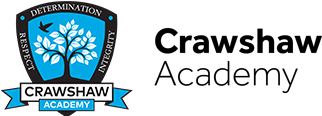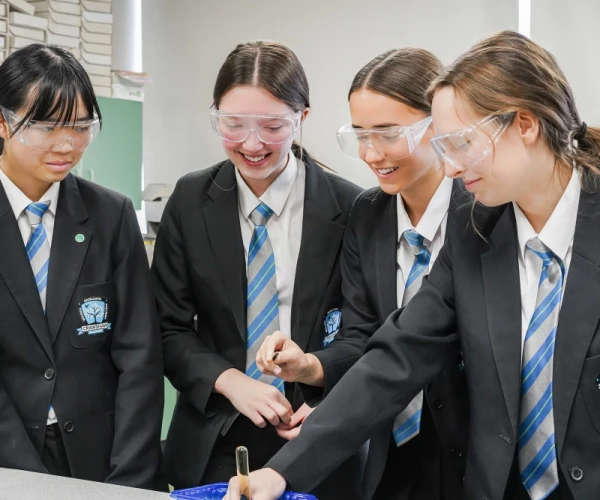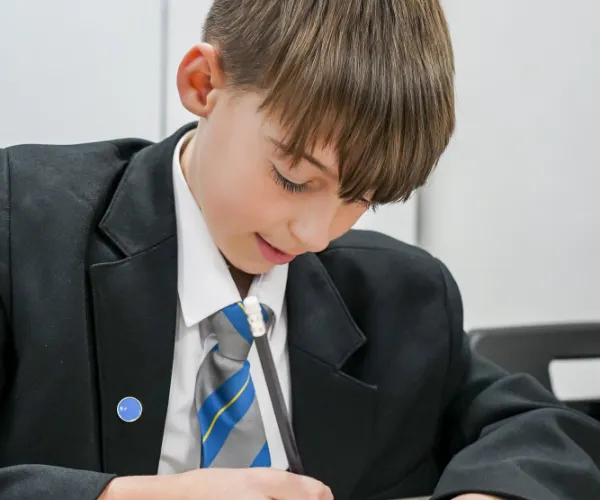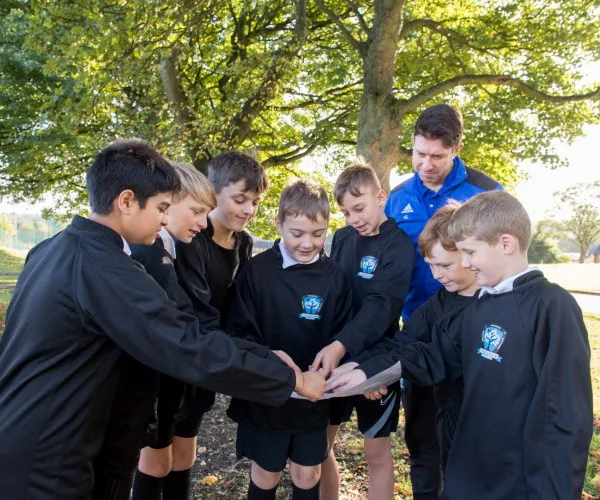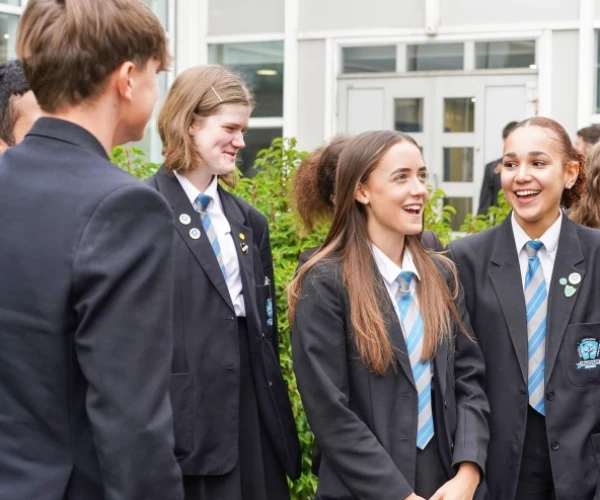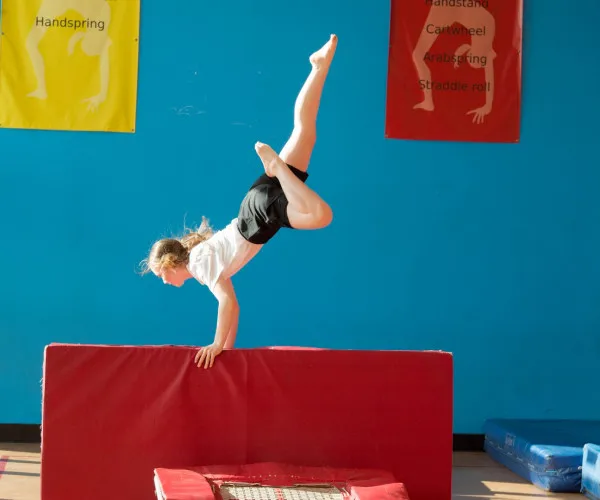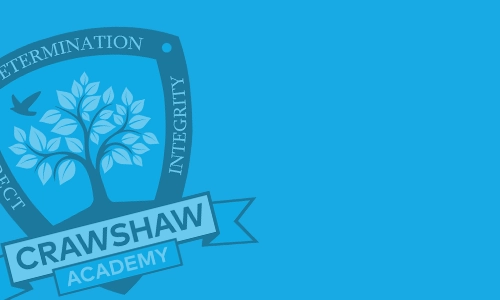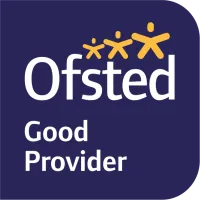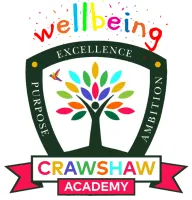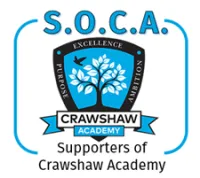- Learning at Crawshaw
- Year 11 Revision
- The Crawshaw Curriculum
- Personal Development
- Subjects
- Homework/Independent learning
- Remote learning
- Exams Information
- Learning Resource Centre
- Post 16 Provision
- Future Ready/CEIAG
SMSC
At Crawshaw, we believe the spiritual, moral, social and cultural development of all children is essential to them becoming well-rounded citizens who actively contribute to society. SMSC is embodied within our school promises, core values and ethos and enables children to be Respectful, show Integrity and be Determined to learn at all times. We teach SMSC across the curriculum and promote it thoughtfully and broadly.
Spiritual, Moral, Social & Cultural Audit
“Leaders pay equal attention to the spiritual, moral, social and cultural development of pupils as they do to academic standards. They place high importance on preparing students for life in modern Britain by devoting curriculum time to important moral and social questions.”
“Leaders have created an inclusive school where they seek to support students. Leaders understand some of the difficulties that pupils face at times in their life, and they carefully consider how to support pupils’ emotional well-being. Bullying is infrequent and, where it does occur, pupils say that it is dealt with effectively.”
Ofsted 2019
At Crawshaw Academy we work in partnership with parents and the local community to develop young adults with the academic qualifications and moral values to make a difference in society. We are proud of the rounded education we provide and place great emphasis on the spiritual, moral, social and cultural development of students.
The SMSC Audit must be read in conjunction with Self Evaluation Form (SEF) and Academy Improvement Plan (AIP) to gain a full understanding of the high priority placed on this aspect of educational provision and our commitment to ensure our students receive an outstanding experience. Specific articles are also included in our parent briefing, website, and social media accounts.
At Crawshaw Academy the spiritual development of students is shown by their:
-
ability to be reflective about their own beliefs, religious or otherwise, that inform their perspective on life and their interest in and respect for different people’s faiths, feelings and values
-
sense of enjoyment and fascination in learning about themselves, others and the world around them
-
use of imagination and creativity in their learning
-
willingness to reflect on their experiences
At Crawshaw Academy the moral development of students is shown by their:
-
ability to recognise the difference between right and wrong and to readily apply this understanding in their own lives, recognise legal boundaries and, in so doing, respect the civil and criminal law of England
-
understanding of the consequences of their behaviour and actions
-
interest in investigating and offering reasoned views about moral and ethical issues and ability to
-
understand and appreciate the viewpoints of others on these issues.
At Crawshaw Academy the social development of students is shown by their:
-
use of a range of social skills in different contexts, for example working and socialising with other students, including those from different religious, ethnic and socio-economic backgrounds
-
willingness to participate in a variety of communities and social settings, including by volunteering, cooperating well with others and being able to resolve conflicts effectively.
-
acceptance and engagement with the fundamental British values of democracy, the rule of law, individual liberty and mutual respect and tolerance of those with different faiths and beliefs; they develop and demonstrate skills and attitudes that will allow them to participate fully in and contribute positively to life in modern Britain
-
use of a range of social skills in different contexts, for example working and socialising with other students, including those from different religious, ethnic and socio-economic backgrounds
-
willingness to participate in a variety of communities and social settings, including by volunteering, cooperating well with others and being able to resolve conflicts effectively.
-
acceptance and engagement with the fundamental British values of democracy, the rule of law, individual liberty and mutual respect and tolerance of those with different faiths and beliefs; they develop and demonstrate skills and attitudes that will allow them to participate fully in and contribute positively to life in modern Britain
At Crawshaw Academy the cultural development of students is shown by their:
-
understanding and appreciation of the wide range of cultural influences that have shaped their own heritage and those of others
-
understanding and appreciation of the range of different cultures within school and further afield as an essential element of their preparation for life in modern Britain
-
knowledge of Britain’s democratic parliamentary system and its central role in shaping our history and values, and in continuing to develop Britain
-
willingness to participate in and respond positively to artistic, musical, sporting and cultural opportunities
-
interest in exploring, improving understanding of and showing respect for different faiths and cultural diversity and the extent to which they understand, accept, respect and celebrate diversity, as shown by their tolerance and attitudes towards different religious, ethnic and socio-economic groups in the local, national and global communities
| Spiritual Development | |
|---|---|
| Aspect | Examples of Evidence |
| Ability to be reflective about their own beliefs, religious or otherwise, that inform their perspective on life and their interest in and respect for different people’s faiths, feelings and values |
Celebration of religious festivals
Weekly assemblies Form time including KS4 Friday Moral Compass Celebration of other faith festivals through lesson activities and school menu Study of other religions included in RS curriculum |
| Sense of enjoyment and fascination in learning about themselves, others and the world around them | Year 7 Residential Year 7 Transition Events, team building activities Gardening Club Extra-curricular trips and visits |
| Use of imagination and creativity in their learning |
Creative writing club (word vomit)
Use of imagination and creativity in art, music & drama Design projects in graphics, textiles, food and nutrition and product design Problem solving in mathematics and physical education |
| Willingness to reflect on their experiences |
Opportunities for reflection time in form time and KS3 Resilience lessons
Group work activities Whole school events e.g. Remembrance Day |
| Moral Development | |
| Aspect | Examples of Evidence |
| Ability to recognise the difference between right and wrong and to readily apply this understanding in their own lives, recognise legal boundaries and, in so doing, respect the civil and criminal law of England |
School policies for behaviour, anti-bullying, inclusion
Classroom Code of Conduct/Home School Agreement Curriculum for Life lessons - considering human rights, individual responsibilities & the importance of the law RS curriculum considering the Ten Commandments, Gospel teaching and religious law |
| Understanding of the consequences of their behaviour and actions |
Discussion in RS, resilience and Curriculum for Life of moral dilemmas
Anti-bullying assemblies which consider the impact of bullying on the victim Curriculum topics on climate change and recycling which have impact on the environment RS curriculum considering the consequences of conflicts around the world Curriculum for Life lessons considering the dangers of illegal drugs and their impact on society Police and fire safety officers speaking in assembly about firework safety, water safety Prison Me! No Way! Workshops with police and probation service to consider consequences of breaking the law |
| Interest in investigating and offering reasoned views about moral and ethical issues and ability to understand and appreciate the viewpoints of others on these issues |
Fundraising, volunteering and community projects which focus on social justice
External speakers in assemblies from community and local organisations Participation in Berlin visit to concentration camps and subsequent awareness raising in assemblies on racial tolerance |
| Social Development | |
| Aspect | Examples of Evidence |
| Use of a range of social skills in different contexts, for example working and socialising with other students, including those from different religious, ethnic and socio-economic backgrounds | Student engagement in school and year councils Year 7 Residential Sporting activities and competitions with other schools Team and group activities within curriculum lessons |
| Willingness to participate in a variety of communities and social settings, including by volunteering, cooperating well with others and being able to resolve conflicts effectively | Student Leaders and Peer mentors Participation in musical concerts and drama performances |
| Acceptance and engagement with the fundamental British values of democracy, the rule of law, individual liberty and mutual respect and tolerance of those with different faiths and beliefs; they develop and demonstrate skills and attitudes that will allow them to participate fully in and contribute positively to life in modern Britain |
Curriculum for Life includes specific topics on fundamental British values of democracy, the rule of law, individual liberty and mutual respect and tolerance of those with different faiths and beliefs
Prefect and student leadership roles within school |
| Cutural Development | |
| Aspect | Examples of Evidence |
| Understanding and appreciation of the wide range of cultural influences that have shaped their own heritage and those of others |
History curriculum considering the cultural and ethnic diversity that has shaped modern Britain
Specific activities to recognise Black History Month and Chinese New Year |
| Understanding and appreciation of the range of different cultures within school and further afield as an essential element of their preparation for life in modern Britain |
European Day of Languages to celebrate the cultural and linguistic diversity within the school community
Celebration days from other cultures e.g. Chinese New Year |
| Knowledge of Britain’s democratic parliamentary system and its central role in shaping our history and values, and in continuing to develop Britain |
Curriculum for Life lessons considering the role of democracy and the British parliamentary system
|
| Willingness to participate in and respond positively to artistic, musical, sporting and cultural opportunities |
Wide range of extra-curricular activities available to students and high participation rate
Art department visits to London galleries English department visits to see contemporary and classical theatre to complement their study in the curriculum Drama department productions Music department events throughout the year Enrichment visits to Berlin, Austria and Sorrento Local, regional and national competitions in a variety of sports |
| Interest in exploring, improving understanding of and showing respect for different faiths and cultural diversity and the extent to which they understand, accept, respect and celebrate diversity, as shown by their tolerance and attitudes towards different religious, ethnic and socio-economic groups in the local, national and global communities |
In school theatre performances celebrating diversity and tolerance
External speakers from other faith traditions Student participation in local, national and international appeals Literature studied in English lessons from a variety of different cultures to celebrate diversity and promote tolerance |
- Learning at Crawshaw
- Year 11 Revision
- The Crawshaw Curriculum
- Personal Development
- Subjects
- Homework/Independent learning
- Remote learning
- Exams Information
- Learning Resource Centre
- Post 16 Provision
- Future Ready/CEIAG
